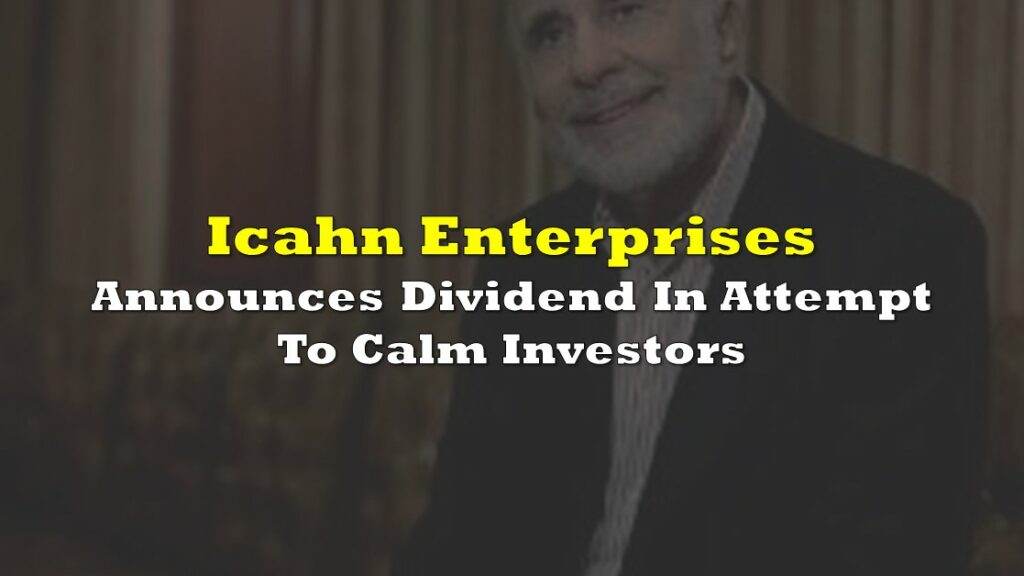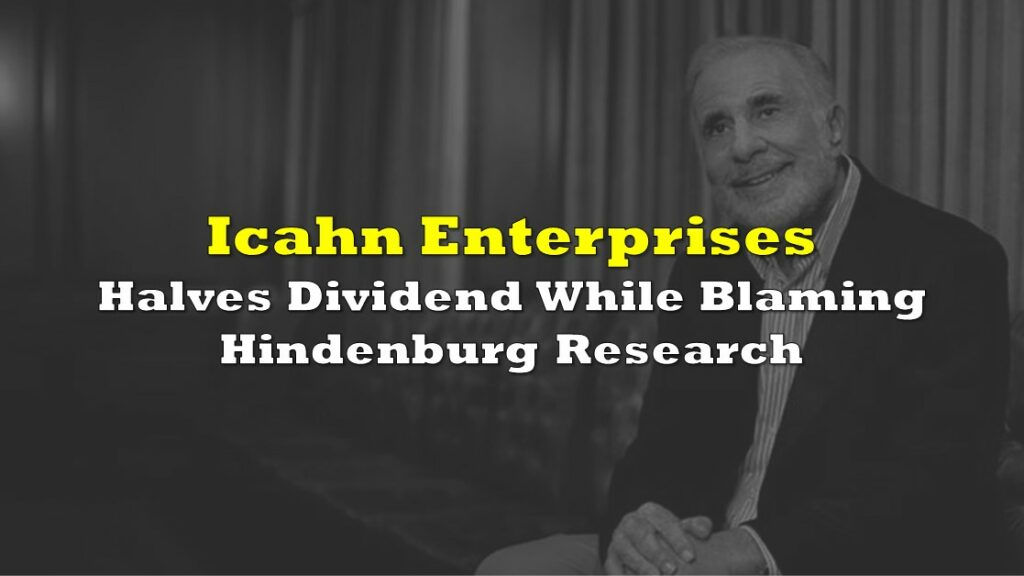Activist investor Carl Icahn announced that his investment company is under investigation by federal prosecutors and attacked the short seller who likely triggered the investigation, accusing him of “wantonly destroying property and harming innocent civilians.”
Icahn’s publicly traded company, Icahn Enterprises (Nasdaq: IEP), was targeted by short seller Hindenburg Research earlier this month. The next day, the US Attorney’s Office for the Southern District of New York contacted Icahn Enterprises on Wednesday, asking for information on the firm’s assets, corporate governance, dividends, and other matters, according to a securities filing.
The firm stated in the filing that it is cooperating with the inquiry and doesn’t expect it will have a substantial impact on the business.
The company’s shares fell 15% Wednesday and are down 41% in the last month. It currently trades at its lowest since 2009.
“Hindenburg Research, founded by Nathan Anderson, would be more aptly named Blitzkrieg Research given its tactics of wantonly destroying property and harming innocent civilians,” said Icahn in the company’s response to Hindenburg’s accusations. “Mr. Anderson’s modus operandi is to launch disinformation campaigns to distort companies’ images, damage their reputations and bleed the hard-earned savings of individual investors. But, unlike many of its victims, we will not stand by idly.”
Until Wednesday, the generally loquacious and media-friendly Icahn had only spoken publicly in the aftermath of the study through short business statements that claimed Icahn Enterprises would pay its quarterly $2 dividend as scheduled and that its long-term success would speak for itself.
Hindenburg, a well-known short seller, claimed that Icahn was highly leveraged and trading at several times the value of its held assets due to inflated asset valuations.
“Confidence games never last forever,” Hindenburg’s report said. “We expect Icahn Enterprises will be no different.”
The corporation wrote down the value of one of the stocks that Hindenburg identified as overvalued in its analysis. Icahn acknowledged in its filings that its auto-parts subsidiary filed for Chapter 11 bankruptcy at the end of January. Icahn reported in March that the auto-parts division was worth $381 million at the end of the year.
Headquartered in Sunny Isles Beach, Florida, Icahn Enterprises is involved in a variety of industries, including energy, automotive, food packaging, metals, and real estate.
The response to Hindenburg’s report comes hours after the firm released its Q1 2023 financials, reporting revenues of $2.6 billion and net loss of $270 million, or a loss of $0.75 per depositary unit. The figures compare to Q1 2022’s earnings: $4.1 billion in revenue and $323 million in net income, or $1.06 per depositary unit.
Icahn Enterprises’ adjusted EBITDA was $116 million for the quarter, down from the $616 million it recorded in the year-ago period.
Indicative net asset value was $5.6 billion for the three months ended March 31, 2023, relatively flat compared to the previous quarter.
One of the issues the Hindenburg report brought up is that Icahn Enterprises “inflated” asset valuations due to an unusually high net asset value premium in shares of the publicly traded holding company. Other closed-end holding companies like Dan Loeb’s Third Point and Bill Ackman’s Pershing Square trade at discounts to their NAV, the report said.
“We have full confidence in the integrity of our presented financials and our reporting,” CEO David Willetts said in the earnings call. “Ninety percent of our NAV valuations are comprised primarily of either mark-to-market securities or audited GAAP book values or external valuations. The remaining 10% are valued on a market-comparable basis using historical EBITDA.”
He added that the company’s dividend policy is based on its “assessment of IEP’s ability to return capital to unitholders over a long-term basis.” This is in response to Hindenburg’s report citing that the company’s cash flow and investment performance are “unsupported” by the high dividend yield.
“IEP has $1.9 billion of cash on hand and $4 billion of additional liquidity in the investment funds, and we’re well positioned for future success,” Willetts touted.
The company admitted that its market capitalization fell by $6.6 billion since the report was published.
“The good news for IEP’s investors is that we have Carl, the liquidity, the strategy and the know-how to fight back,” the company said.
Information for this briefing was found via The Wall Street Journal and the sources mentioned. The author has no securities or affiliations related to this organization. Not a recommendation to buy or sell. Always do additional research and consult a professional before purchasing a security. The author holds no licenses.









